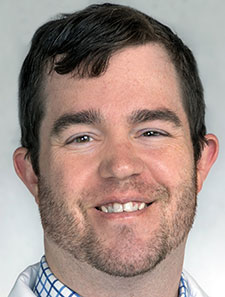
Drr. Taylor
Clinical question: Does Glucagon-like Peptide-1 Receptor Agonist (GLP-1 RA) use lead to an increased risk of aspiration in patients undergoing anesthesia for elective procedures?
Background: GLP-1 RA use has skyrocketed in the U.S., expanding from use as an agent for diabetes to new indications including weight loss. Due to concerns for increased risk of pulmonary aspiration during anesthesia, the American Society of Anesthesiologists recommends patients who receive weekly dosing of these medications to hold them at least one week prior to elective procedures.
Study design: Cross-sectional study
Setting: Single center at the University of Texas Health Science Center at Houston
Synopsis: Participants screened from 953 patients presenting for elective procedures with anesthesia were enrolled into control and exposure groups of 62 patients each. Patients were excluded if they did not have normal gastric anatomy, were pregnant, had recent trauma (within one month), or were unable to lie in the right lateral decubitus position. The exposure group included patients using weekly semaglutide, dulaglutide, or tirzepatide. Each patient completed gastric ultrasonography with an anesthesiologist to assess the primary outcome of increased residual gastric content, defined as the presence of solids, thick liquids, or more than 1.5 mL/kg of clear liquids. Images were independently assessed by a second blinded anesthesiologist, and discrepancies were settled by a third blinded anesthesiologist. Adjusted for confounding variables, the GLP-1 RA group was associated with a 30.5% higher prevalence of increased residual gastric content (95% CI, 9.9 to 51.2%). This suggests patients undergoing elective procedures should be screened for recent use of GLP-1 RA and consider discussing with anesthesiology if these procedures should be delayed.
Bottom line: Use of weekly GLP-1 RA prior to elective procedures under anesthesia in patients who have fasted is associated with increased residual gastric contents on ultrasound, however, further research is needed to determine how this correlates with pulmonary aspiration events.
Citation: Sen S, Potnuru PP, et al. Glucagon-like peptide-1 receptor agonist use and residual gastric content before anesthesia. JAMA Surg. 2024:e240111. doi: 10.1001/jamasurg.2024.0111.
Dr. Taylor is a faculty hospitalist in the division of hospital medicine at the University of California in San Diego.